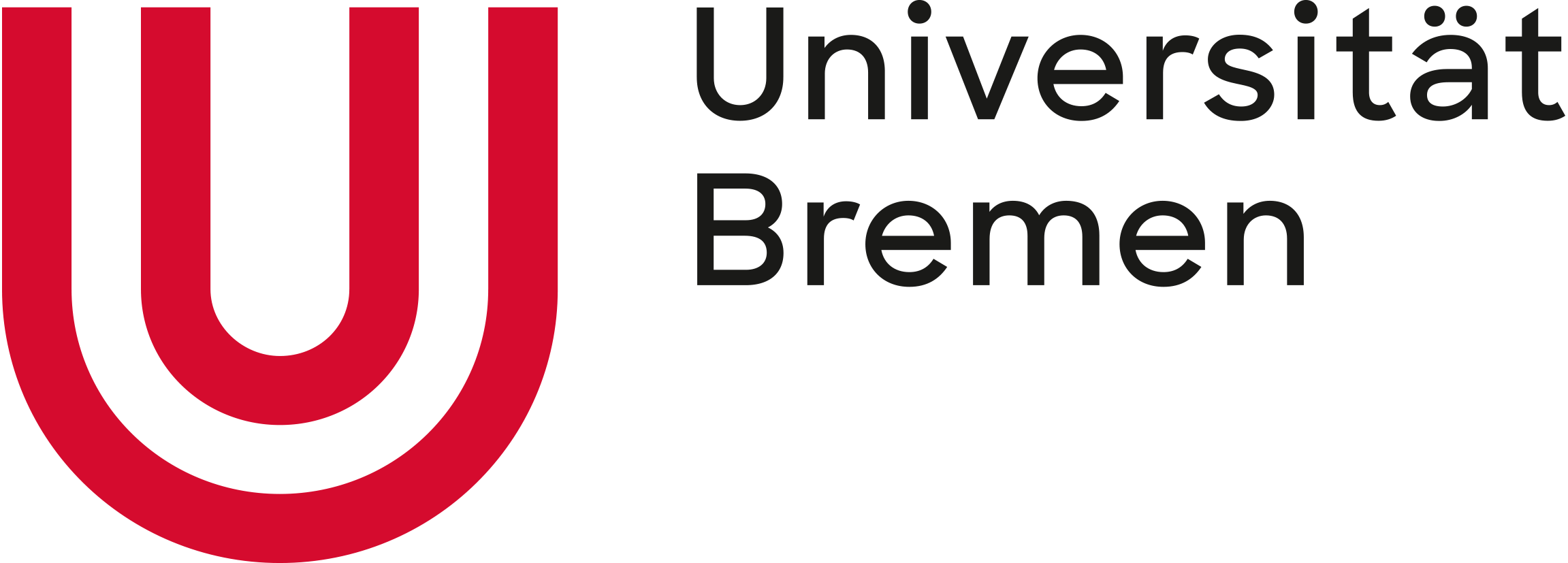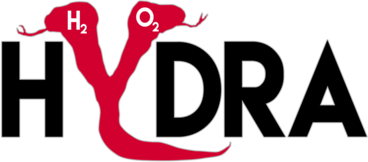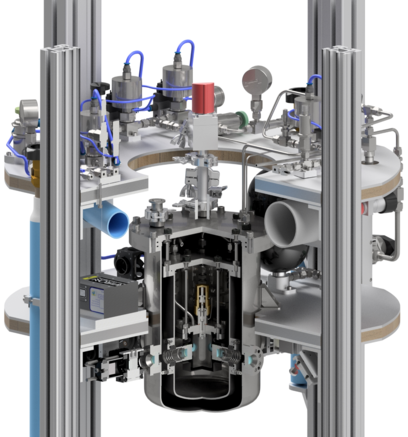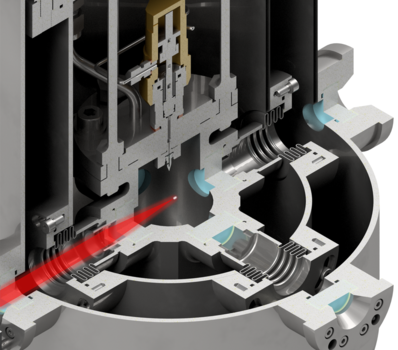hydra
The goal of the project HYDRA is the investigation on the combustion of single liquid oxygen (LOX) droplets in a hydrogen environment under microgravity conditions. To enable these conditions an experimental setup is developed and integrated into a drop tower capsule. In parallel to the drop tower experiments the University of Washington develops a numerical combustion simulation and parametric studies will be performed to be compared with experimental results. Typical applications for hydrogen-oxygen combustion are rocket engines.
The main components of the experimental setup are the combustion chamber, which is sheathed by a liquid nitrogen (LN2) container and a vacuum container for insulation purpose. The combustion chamber is developed to withstand an initial pressure of >50 bar (supercritical). The initial temperature will be 77 K by cooling with LN2. To generate a LOX droplet gaseous oxygen is poured into a cryogenic needle valve. Due to the LN2 sheath the oxygen condensates and is drawn into the combustion chamber when the valve is opened. A suspender is designed to allow the LOX to flow downwards and form a single droplet at the suspender tip, which is molded spherically to hold the droplet in position. In microgravity the droplet is ignited through a plasma discharge and the combustion will be observed. Ambient pressure and the constitution of the atmosphere are the parameters to be varied. To be measured or diagnosed are: the droplet diameter through shadowgraphy, the instant of the flame and it’s diameter through OH-PLIF, OH-chemiluminescence and Schlieren optics, the temperature field information are derived from the density gradients visualized through the Schlieren optics. The first of six drop tower campaigns is planned for beginning of 2019.
Subcontractors/project partners:
- Leibniz Institute of Photonic Technology (IPHT), Jena
- University of Washington (UW), Seattle (USA)
Team members at ZARM:
- Christian Eigenbrod
- Florian Meyer
- Günther Marks
- Michael Peters
This research is funded by the German Federal Ministry for Economic Affairs and Energy through the German Space Administration (DLR) in the framework of HYDRA (grant: 50WM1645). The collaboration between ZARM as part of the University of Bremen and the University of Washington is supported by the US Fulbright Scholars Program.





 "
"